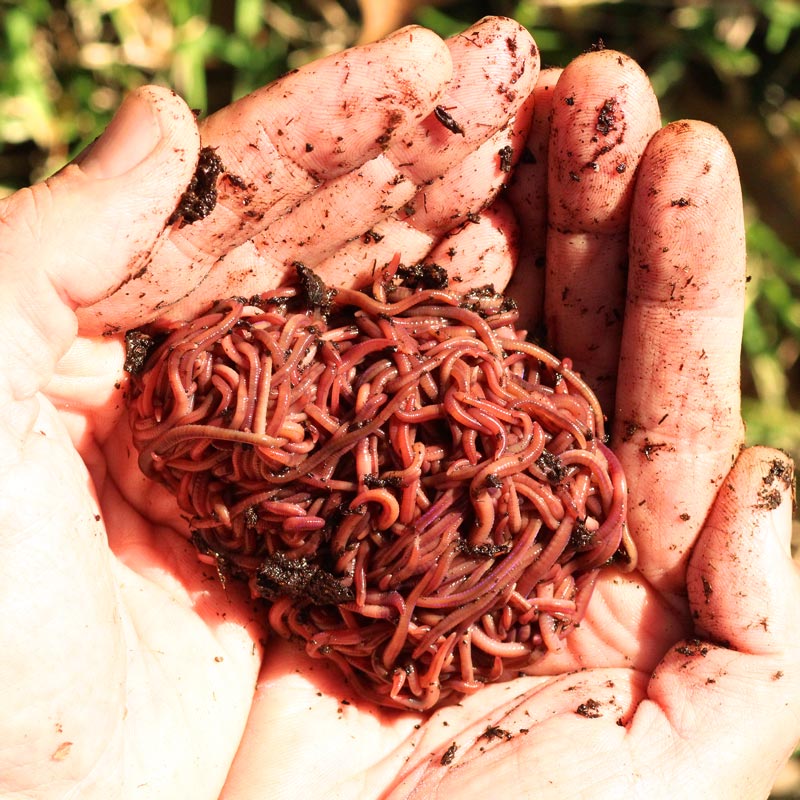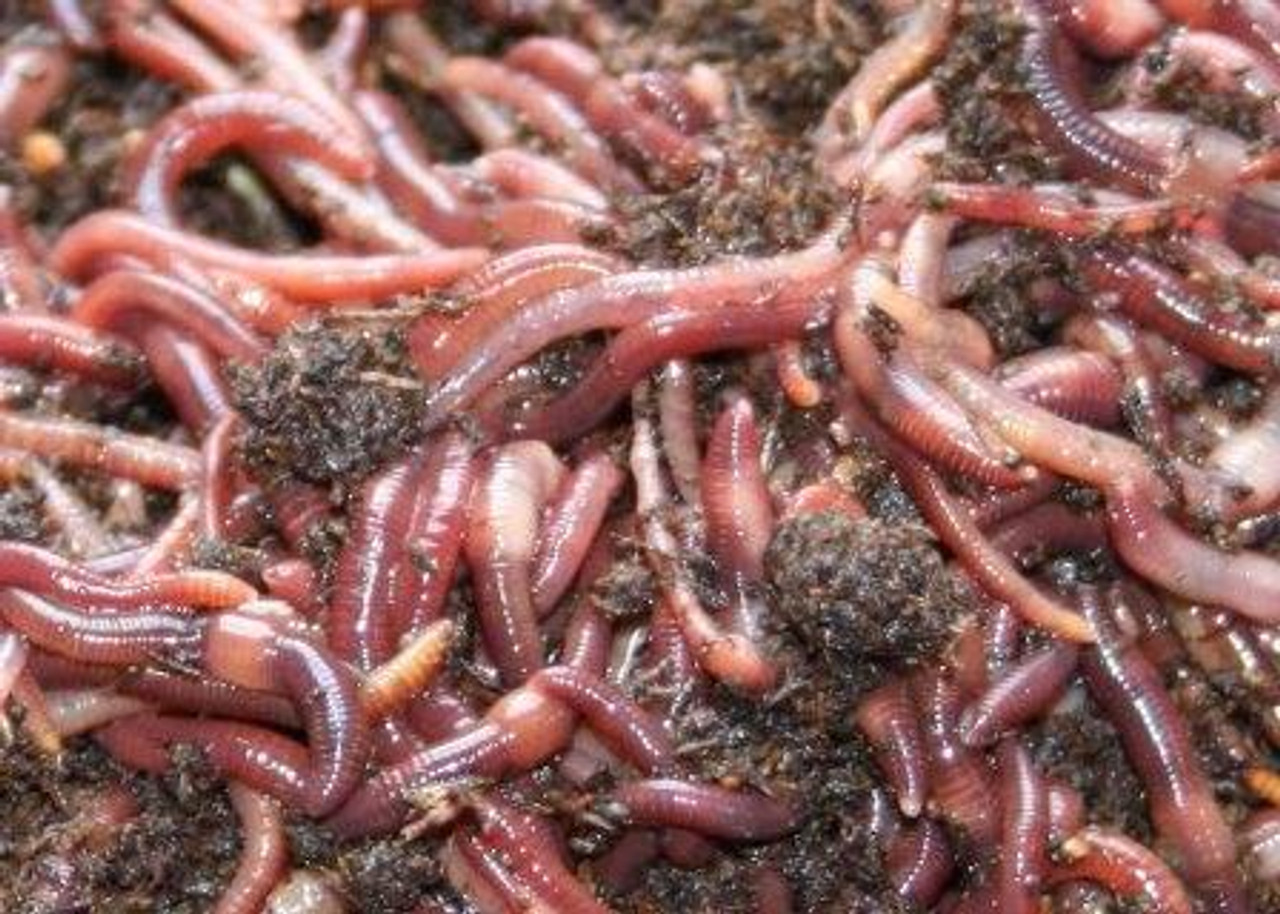Enhance Your Lawn’s Health and Beauty with Red Wiggler Express Lawn Care Products
Enhance Your Lawn’s Health and Beauty with Red Wiggler Express Lawn Care Products
Blog Article
The Amazing Globe of Red Wigglers: Increase Your Soil Fertility Today
These little yet efficient microorganisms transform organic waste right into valuable worm spreadings, substantially boosting soil health and wellness and promoting lasting techniques. As we discover the benefits of vermicomposting and the sensible steps to produce an effective worm bin, the potential effect of these worms on your gardening success becomes increasingly apparent.
Understanding Red Wigglers
Red wigglers, clinically called Eisenia fetida, are a types of earthworm that play an essential function in boosting dirt fertility. These worms flourish in organic-rich atmospheres, such as compost heap and decomposing plant material, where they take in natural waste and secrete nutrient-dense spreadings. Their special makeup, featuring a segmented body and a clitellum, permits them to duplicate swiftly and successfully process big quantities of natural issue.

The ecological relevance of red wigglers expands beyond plain waste processing; they add to the dirt food internet, cultivating a diverse neighborhood of bacteria that even more enhance soil wellness. Recognizing the biology and behavior of red wigglers is necessary for using their full potential in lasting farming and gardening methods.
Advantages of Vermicomposting
(Red Wiggler Express)Harnessing the power of red wigglers through vermicomposting deals numerous benefits that dramatically enhance soil health and wellness and fertility. One of the key advantages is the production of nutrient-rich worm castings, which are an excellent natural plant food. Red Wiggler Express. These spreadings contain crucial nutrients like nitrogen, phosphorus, and potassium, promoting durable plant development and enhancing crop yields
Additionally, vermicomposting enhances dirt structure and aeration. The existence of worm spreadings enhances soil appearance, permitting far better water retention and water drainage. This balanced dampness degree is important for root advancement and the overall health of plants. Moreover, red wigglers assist break down raw material, increasing decay and reusing nutrients back into the soil.
Vermicomposting also cultivates microbial task, which is crucial for a healthy and balanced dirt ecosystem. Beneficial bacteria flourish in the existence of worm castings, assisting in the failure of organic products and enhancing vitamins and mineral accessibility to plants.
Lastly, vermicomposting acts as a reliable waste monitoring solution, minimizing land fill waste by reusing cooking area scraps and various other organic materials. This not just adds to environmental sustainability but likewise promotes a round economic situation within horticulture and farming.
How to Establish a Worm Container
Setting up a worm bin is an uncomplicated procedure that can significantly enhance your composting initiatives. Begin by selecting a suitable container, which can range from a commercially offered worm bin to a simple plastic or wooden box (Red Wiggler Express). Make certain the container has appropriate air flow; small openings in the lid and sides will promote air blood circulation
Next, create a bed linen layer to give a comfortable setting for the red wigglers. This can be made from shredded newspaper, cardboard, or coconut coir, dampened to a wet, sponge-like uniformity. Fill the container to around one-third full with this bedding product.
When the bed linen is prepared, it's time to present the worms. Red wigglers thrive in natural waste, so place them gently onto the bed linen. Cover the worms with a light layer of extra bed linens to help them adapt.
Feeding Your Red Wigglers
Providing the best food for your red wigglers is crucial for their wellness and the effectiveness of your composting system. Red wigglers thrive on a varied diet regimen, mainly including organic materials such as vegetables and fruit scraps, coffee premises, and shredded paper. These materials not just offer crucial nutrients but likewise add to the microbial activity in the worm container, which is crucial for the worms' digestion.
It is necessary to stay clear of certain foods, such as milk products, oils, and meats, as these can draw in bugs and develop undesirable smells. Additionally, citrus peels and excessively zesty foods must be restricted due to their prospective to hurt the worms. A balanced technique to feeding entails keeping an eye on the amount of food introduced to the container, guaranteeing that it is eaten within a sensible amount of time to stop excess waste accumulation.
To advertise optimal food digestion, it is useful to slice or shred bigger food products prior to including them to the container. This method increases the area for microbial activity, helping with quicker decomposition and enhancing the general effectiveness of your composting system. Consistently observing the worms' feeding habits will certainly assist you change their diet regimen as required.
Utilizing Worm Castings in Your Yard

(Lake Hickory Bait)Integrating worm castings into your yard can be achieved by mixing them right into the soil or using them as a top dressing. The slow-release nature of these castings makes certain that nutrients are offered to plants over a prolonged duration, reducing the requirement for synthetic plant foods. In addition, worm spreadings have valuable bacteria that advertise healthy dirt ecological communities, improving the general resilience of your yard.
To make the most of the benefits, aim to apply approximately one part worm spreadings Red Wiggler Express to three parts dirt in your planting beds. Regular applications can result in boosted crop returns and healthier plants, making worm castings an important resource for both novice and skilled garden enthusiasts alike. By using this all-natural amendment, you can cultivate a flourishing yard while adding to lasting horticulture techniques.
Conclusion
In verdict, red wigglers exemplify the essential function of vermicomposting in improving soil fertility. Their capability to convert organic waste into nutrient-rich castings dramatically enhances soil structure and supports microbial variety.
Report this page